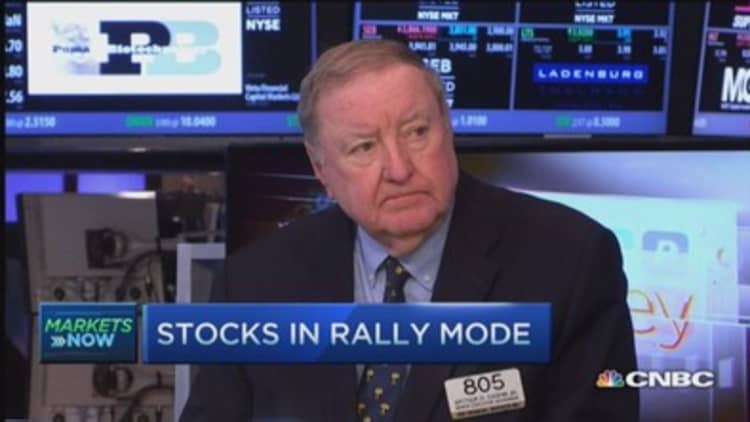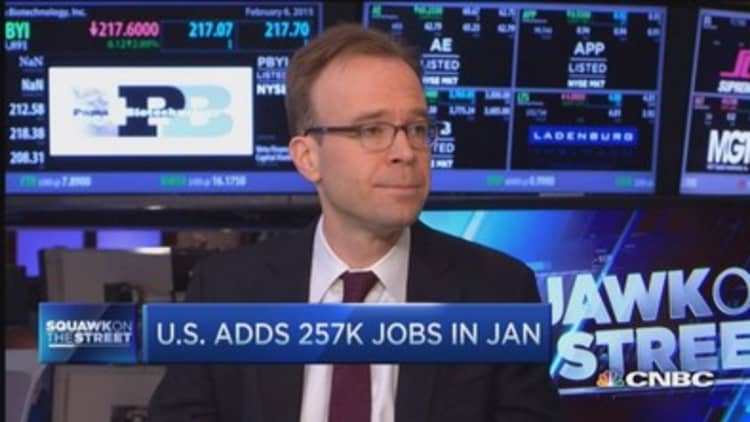
Experts got a pleasant surprise Friday morning as the Bureau of Labor Statistics reported the U.S. economy added 257,000 jobs in January, beating estimates by about 23,000. The BLS also revised its November and December 2014 estimates, raising them to 423,000 and 329,000, respectively.
Art Cashin, director of floor operations at UBS, said in another interview with CNBC's "Squawk on the Street" on Friday he was also surprised. "With the rig count going down, you would've thought that some of those crude-related [and] fracking-related jobs might have pulled it the other way. I think the markets were surprised, and we're getting a little upward pressure on [Fed] rates."
Read More US created 257,000 jobs in Jan vs. 234,000 est; unemployment rate at 5.7% vs. 5.6% est

Nevertheless, many experts believe this jobs report does not put enough pressure on Fed rates for it to raise them. "[The Fed] wants to see much more wage growth," Diane Swonk, chief economist at Mesirow Financial, told CNBC on Friday. "We're still well below that…. This keeps the Fed patient in terms of how they do lift off going forward."
Another economist agreed with Swonk on Friday. "I still think that, despite the improvement in the labor market, inflation is 0.7 percent below the target, headline inflation is probably going to be negative or zero," Jan Hatzius, chief economist at Goldman Sachs, told CNBC. "Wages, even with [November and December] corrections, are still growing 2 percent or lower. That's the same rate we have seen for five years. If you look at all the indicators together, we haven't made any headway in terms of the growth of wages, and it's still pretty far below the 3 to 4 percent range that [Fed Chair] Janet Yellen indicated was a normal pace of wage growth."
Read MoreWall Street cheers better-than-expected jobs report
Swonk also added that the wage increase in January is due in large part to the minimum wage increases of nine states. "We now have 29 states above the federal minimum, [including low-wage states] like Florida and Arizona," she said. "That's not bad, necessarily, but it's important to understand that we did have something happen in January that also helped some of those wages grow."
Ed Lazear, former President George W. Bush's chief economic advisor, also told CNBC that the U.S. economy still has a long road ahead in order to recover fully. "We have to remember where we are relative to where we need to be," he said. "At this pace, we're still talking two to three years before we reach prerecession levels of employment relative to the population."


